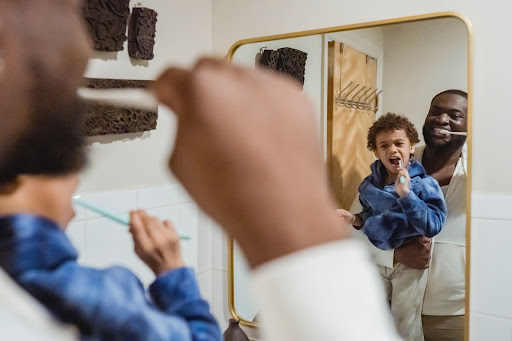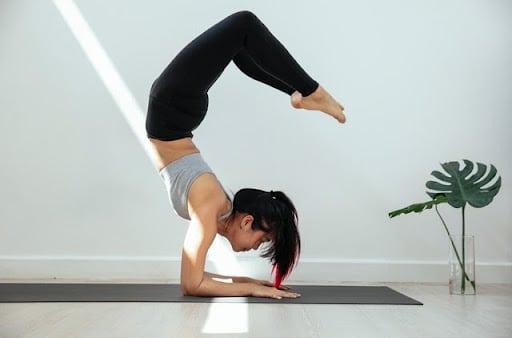In an effort to be productive, we set up systems we call rituals, routines, and habits. But although we use these terms interchangeably, they have very distinct meanings.
In this article, you’ll learn the differences between ritual vs routine vs habits so you can use these systems more productively. So let’s jump right in!
Habits Rituals and Routines Definition
As defined by American Psychological Association, a habit is a “well-learned behavior or automatic sequence of behaviors that are relatively situation-specific and over time has become independent of motivational or cognitive influence.” To put it simply, a habit is a subconsciously repeated behavior.
One of the most effective tactics for forming habits is following routine.
A routine is a sequence of actions regularly followed to do tasks consistently. It requires conscious effort to create and maintain routines.
But routines don’t have to be boring. They can be developed into rituals — a more motivating strategy for building habits and getting things done efficiently.
A ritual is a series of actions repeated with a meaningful purpose attached to it. It’s a routine that includes an intentional focus to give the action meaning.
Let’s dive right into it.

What Is the Difference Between a Routine and a Ritual?
As you have seen in their definitions above, similar actions can be done by two people in the same order but one person may do them as a routine and another, as a ritual.
But exactly how do they differ?
A routine is a sequence of actions regularly followed to be efficient but has no deep meaning to it but a ritual is a series of intentional meaningful practices that provide a sense of purpose plus enjoyment along with structure and efficiency in the tasks.
While routines are viewed as needful chores, rituals are viewed as purpose-filled tasks. While routines can be carried out on autopilot, rituals are intentional. While routines may feel mundane and boring, rituals feel important and enjoyable.
You get the point.
What are examples of rituals and routines?
Let’s take an example of a series of similar tasks showing the main difference between routines and rituals.
A simple daily routine for the morning may go like this:
- Wake up
- Make my bed
- Drink a glass of water
- Go for a walk
- Freshen up
- Take breakfast
- Drive to work
An everyday ritual for a morning may look like this:
- Wake up with positive affirmations for the day
- Make my bed while humming an uplifting song
- Drink a glass of water visualizing how it cleanses my system
- Go for a walk appreciating the beauty in my surroundings
- Freshen up while contemplating the things to be grateful for
- Take breakfast while engaging with family
- Drive to work, listening to uplifting music
As you can see, the tasks are the same but the right attitude in rituals is filled up with meaningful practices that not only make the tasks feel enjoyable but also set one’s mindset towards the positive.
Related: Hacks For The Best Night Routine Ever
How Is Habit Different From Routine and Rituals?
While routines and rituals are intentional behavior, habits are unconscious routine behaviors that don’t require much effort to execute. Habits arise from a regular way of thinking facilitated by deliberate practice or subjective experience.
We can arrange habits to create routines and rituals. Routines and rituals on the other hand can lead to the development of habits we desire to build.
While rituals and routines require conscious effort to execute, habits happen almost effortlessly according to an already set mindset pattern.
You can make certain habits more meaningful by turning them into rituals which with the right techniques, can create more good habits. Examples of habits include:
- Taking a nap after lunchtime
- Journaling every new idea that crosses your mind
- Switching off screens 30 minutes before bedtime
- Taking time out whenever nervous
Habits can be developed by practice through rituals and routines. This would require effort in the deliberate practice but once the habit loop forms, one can partake in a ritual or routine rather subconsciously.
That’s why the most proven tactic for forming habits is by deliberate practice whether through daily routines or rituals. According to researchers from University College London, the number of days it takes to form a habit can be anywhere from 18 to 265 days.
Rituals habits and routines examples that serve you

Whether you want to build habits, develop routines, or create common rituals, here are some ideas to benefit you:
- Sleeping and waking up early and at the same times daily
- Planning the next day the day before
- Writing up priority tasks for the day
- Contemplating how the tasks of the day build up to your higher purpose
- Napping
- Time for mental solitude
- Turn off devices 20 minutes before bed
- Include a daily walk or other forms of exercise every day
- Follow a water drinking ritual to stay hydrated throughout the day
- Practice mindful eating to enjoy the flavor of your food.
You can alter these habits, rituals, and routines to suit the meaning you’d like and build habits important to you. Remember, the more meaning you attach to your tasks, the more motivated you will be.
9 Differences Between Habits Routines and Rituals
To exhaust the differences in habit vs ritual vs routine, we need to look at nine nuances about them.
But why do these differences matter?
Well, exploring these differences helps build better habits while using those habits to follow efficient routines, and create fulfilling rituals.
1. Intentionality
You don’t have to be intentional about a routine — meaning you can just do it for the sake of completing the task. An example is a routine you follow in the morning. If you’ve repeated these tasks long enough, you might find yourself freshening up, eating breakfast, and going to work without much conscious thought into the meaningfulness of these tasks.
In rituals, however, you need to be intentional about visualizing how meaningful the task is plus coming up with ways of making it enjoyable. In the case of a morning routine, waking up with affirmations for the day, singing an inspiring song in the bathroom, and taking your time to savor the taste of the food would be the intentions you pump up your routine tasks with.
In the case of habits, you don’t have to pay attention to either completion or meaningfulness of the tasks. Habits are impulsive.
2. Effort
You need deliberate effort to complete tasks in routines because you want to be efficient.
As for rituals, apart from a deliberate effort to complete a task, there’s an effort to be mindfully involved (adding more meaningful practices). While this might seem like extra effort, introducing meaning to work can make task completion painless.
On the other hand, you don’t need deliberate effort to manifest habits since they’re already recorded in your subconscious. The set of practices you need to follow are usually ingrained in your mindset so much that you’ll only need a trigger to reveal the habit.
3. Meaningfulness
A routine doesn’t have to carry a real sense of purpose. Most routines are for making processes that serve a positive function in daily life efficient. Nothing more.
Rituals carry a sense of purpose. In fact, the purpose is what turns a routine into a ritual.
When two people were asked why they were setting up the recreational center for kids with special needs one said, “That’s a ridiculous question, of course, I am doing this to earn money.” But the other colleague contemplated for a moment and replied, “With every brick I lay each day, I am participating in the cause of making this world a better place for special needs people.”
While the first interviewee didn’t see the task as meaningful, the second one did. So instead of it being just a routine for him, it had become a ritual given the sense of purpose he felt behind every brick he laid.
Habits don’t need to carry a sense of purpose but they can have purpose involved. For instance, one can have the habit of smoking a cigarette every time they feel stressed. In such a case, this habit is done absentmindedly without any thought into its meaningfulness. But in the case of a lunch break napping habit, one may connect it to idea development and promotion of wellbeing.
4. Enjoyment
Routine may feel monotonous and boring since unfulfilling benefits like earning money may be the motivator. That’s why many are bored with their lives and yet show up every day in their routines.
However, rituals are enjoyable since one finds meaning in their tasks. A simple thing like working to earn a living can be fun due to social interaction with coworkers for example.
Habits on the other hand can either be enjoyable or not. It all depends on the type of habit.
For many, bad habits developed as a result of particular pressure. So no matter how easy the habit may be to perform, it wouldn’t be enjoyable. However, good habits that bring significantly positive effects are enjoyable. For instance, a habit of calling loved ones is fun since it brings happy feelings.
5. Structure
Routines in themselves have a structure that enables consistency and efficiency. From one task to another, the nature of a routine makes it dependable for ensuring structure in all sectors of life.
Rituals are more structured than routines in that they not only “arrange” tasks to be done but also structure the frame of mind.
Habits may lack definite structure since they depend on “cues” to be automatically triggered. In the absence of a particular cue, habits won’t be performed. And since they happen subconsciously, they’re freeform.
6. Breaking ritual vs routine vs habit
As mentioned earlier, routines aren’t enjoyable, and therefore, it may feel good to miss them. It’s easy to procrastinate or skip a routine happily especially when you don’t consider the consequences to be harsh. For example, skipping a workout routine can feel like a great day off.
Missing rituals, however, can make you feel bad since they are not only meaningful but also enjoyable. This is especially true if the rituals satisfy a great need in your subconscious.
But nothing feels bad like breaking or resisting a habit loop. Whether good or bad, breaking a habit feels bad since it’s like resisting natural instinct. Habits satisfy certain physical and psychological needs that if not met, can make you feel a great deal of dissatisfaction.
7. Turning habits into ritual and routine and vice versa
Turning habits into routines and rituals is easy because habits are an already set way of thinking. However, it’s extremely difficult to turn routines and rituals into habits.
While you only need to arrange the habits you have to form a routine or ritual, making a new habit through a routine or ritual means trying to make something you’re not used to doing into something that comes to you naturally(experiencing an automatic urge to follow a set system).
This requires much repetition and according to the studies included earlier, it can take anywhere from 3 weeks to 38 weeks.
8. The Inadequacy of Routines
Many professionals enjoy “success” in their lives over decades and come to me frustrated asking, “Is there all to it?” The conversation could go with me asking “What do you mean?” Then they go on to explain.
“I have done all it takes to succeed in my career path, making it to the top of the ladder where many strive and fail to reach. I’ve created routines for myself that I’ve followed over the years to ensure successful habits. But it’s like it’s never enough. One milestone gone, I create another with other routines. But the race doesn’t end. I want more. And yet with so much efficiency, I feel discontented…”
Routines may be efficient, but they’re not fulfilling on their own. And that’s where rituals come in.
9. How Do You Turn a Routine Into a Ritual?

To turn a routine into a ritual:
- Contemplate on the purpose of the routine: Apart from making processes efficient, how does your routine benefit your wellbeing, family, or society? How does it fit in the bigger picture? Think of the purpose attached to your goals when carrying out the routine.
- Change your alarm tones to meaningful music: Instead of an annoying wake-up alarm, use a song that connects you to your purpose.
- Add meaningful exercises to your routine: Prayer, affirmations, and meditation are examples of practices that can spice up your routine to form a ritual.
- Connect with others carrying out the same routines to have a sense of community while maintaining accountability.
- Practice habit stacking: Habit stacking is where you add a new habit you desire to an existing habit that the old habit may be a cue for the new one hence making it easier for the new one to stick. For instance, if you normally take coffee when you wake up, add “drinking a glass of water” before or after drinking coffee that you may remember to hydrate.
It’s all about applying mindfulness to your daily activities.
Related: Reasons Why You’re Stronger Than You Think
Closing Thoughts on Ritual vs Routine vs Habit
Now that you understand the differences between rituals, routines, and habits, think about your most important routine. Do you complete it because you have to or because you enjoy it by connecting it to a higher purpose? What’s your attitude/mindset towards the things you do every day?
Are you going to make some changes to turn routines into rituals and eventually to quality habits? Share your thoughts with us in the comments!
Related Posts
8 Levels Of Listening – Complete Guide
